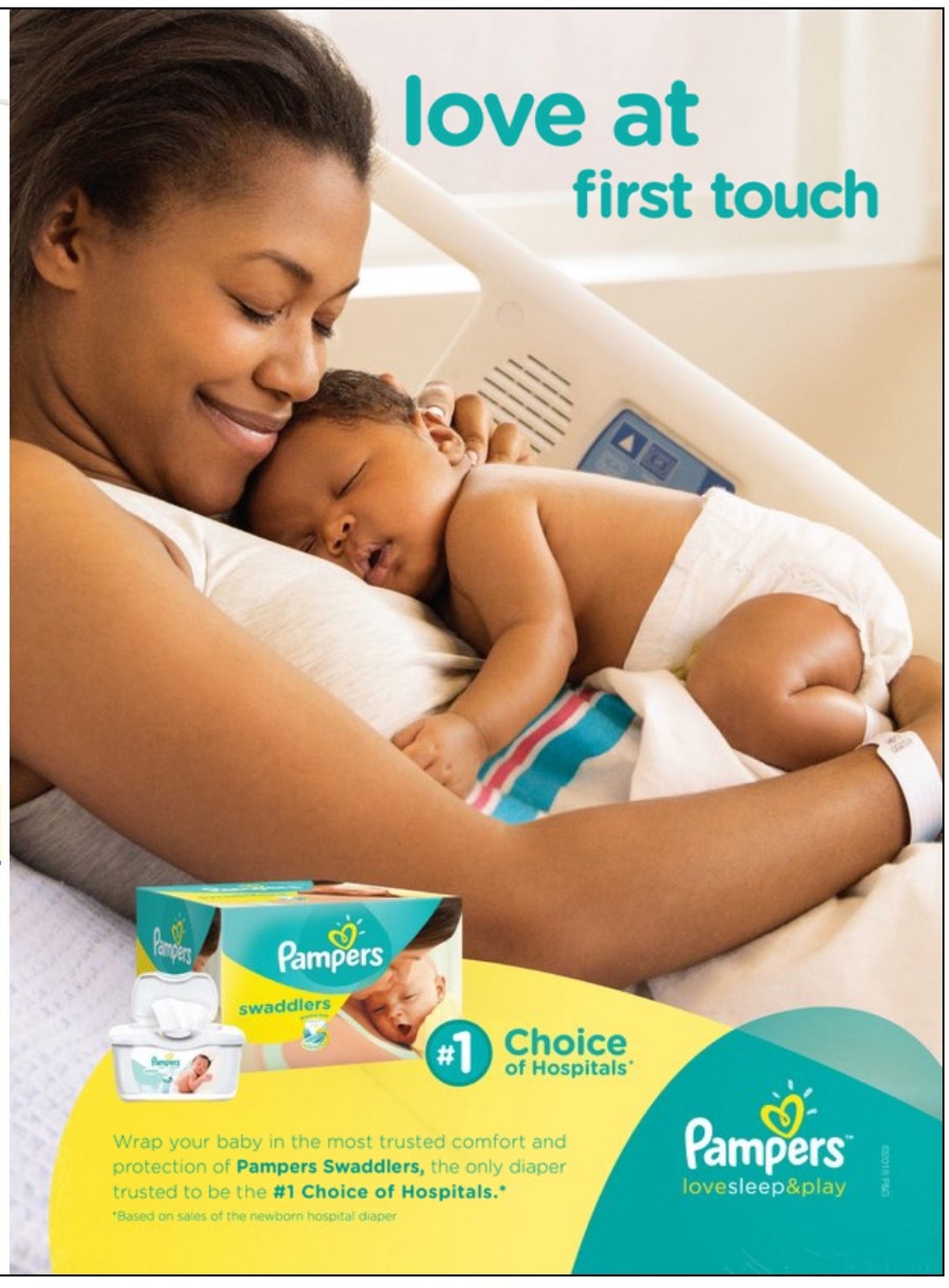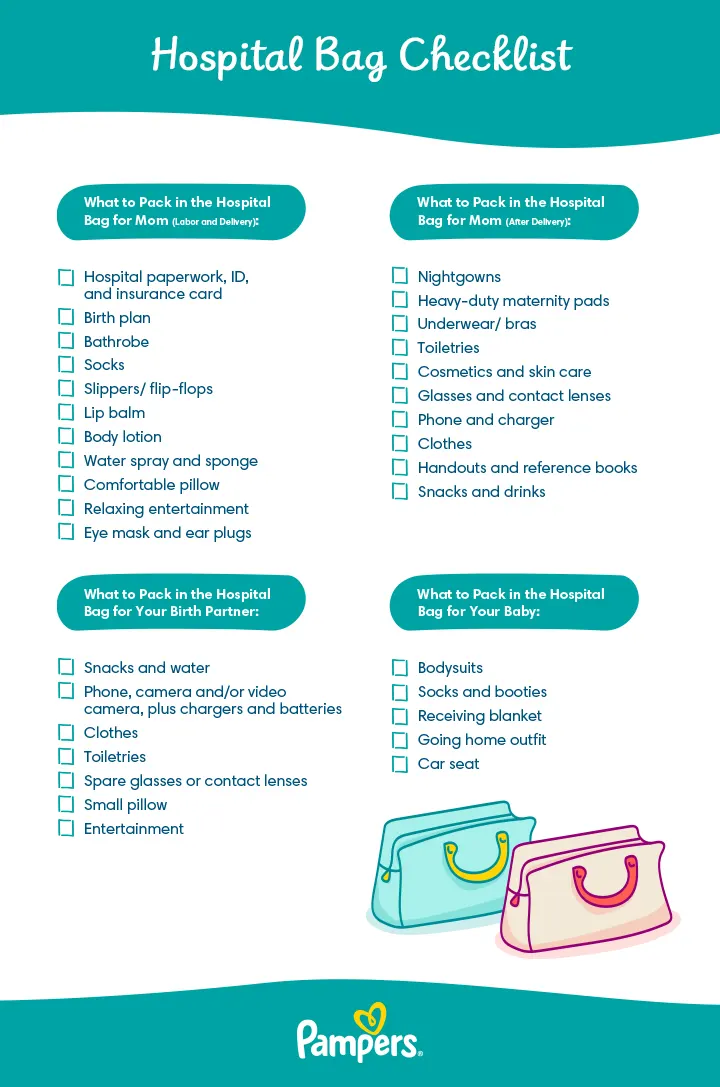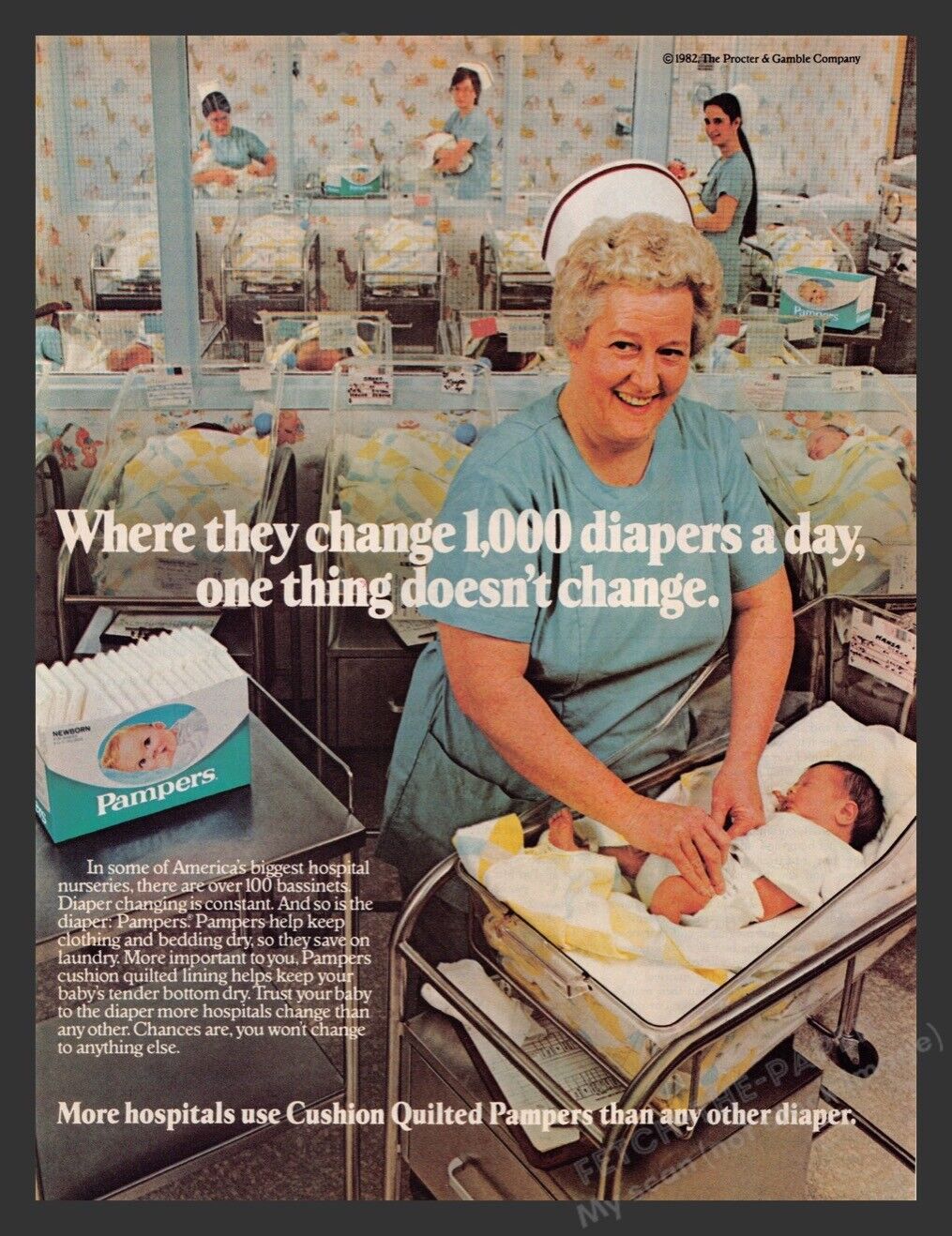Though the hospital staff will provide you with the right information and guidance you need, it might be helpful to have additional resources on hand. It is available in multiple waist sizes starting from 20 inches up to 69 inches. American College of Obstetrics and Gynecology. Toggle navigation. Besides turning down the temperature, I also try to help moms cool down by removing some of their blankets and offering them a cool, moist washcloth for their forehead. Labor can be thirsty work even for supportive partners. Be prepared with a few nursing bras or other comfortable, well-fitting bras. The socks will keep you cozy in bed and with rubber treads on the bottom are safer for walking on the hospital floor when going back and forth from the bathroom. Changing Pads. Pack a reusable water bottle we like ones with straws for easier sipping , and, if you want something more than water, an electrolyte drink, like Gatorade or coconut water. Some women prefer using an adult diaper for this purpose, as it feels more secure than a pad and can be more protective against leaks. If you have a minute, check what your hospital has on hand or provides so you won't need to take those items.


But Meaghan wished she had one. Hovath definitely has made my transition a great one without even knowing. I was happy to have this super-comfortable outfit to go home in. Fit and Sizing: The product uses waistband elastics and leak-guard cuffs at the leg openings. Check with your hospital or birthing center for their specific guidelines.
More from the blog...
Your newborn might get through nappies each day. A small travel or neck pillow may allow your partner to get some sleep. Top 5 bladder control pads from Tena Top 5 bladder control pads from Tena. Too many clothes. They will include toothbrush and toothpaste, facewash or wipes, deodorant, shampoo dry or regular , and a brush with hair ties if you have long hair. It is available in multiple waist sizes starting from 20 inches up to 69 inches. Hospital Bag for Mum: Labour and Delivery As with most things in life, preparing for labour and delivery involves a certain amount of admin. Playing music during labor can be an asset for some. Previous Next. Choose a front-opening style if you plan to breastfeed. They are made from a soft cloth-like back sheet that allows for discreet usage.
Ultimate Hospital Bag Packing List - Green Valley OBGYN
- Read our editorial process to learn more about how we fact-check and keep our content accurate, reliable, and trustworthy.
- Your hospital will provide you with pillows, but they might not be the right kind for you.
- Pack some flip-flops for using in the shower.
- It could help to spray some water on your face and neck, or to sponge some cool water on your forehead.
Are you all set for the big day? If you have a minute, check what your hospital has on hand or provides so you won't need to take those items. Then, once all the bags are packed, keep them handy, either in the car or near the door, so you'll be ready to go at a moment's notice. As with most things in life, preparing for labour and delivery involves a certain amount of admin. Hospital file. Have your medical records handy, so that your doctors can easily see your medical history. Birth plan if you have one. You might have discussed your birth plan with your medical team, but having a few copies printed and available for doctors and nurses means that everyone can refer to it, in case last minute questions arise. Dressing gown. A soft dressing gown is useful for pacing around during labour, or afterward, if you spend some time in the hospital. Many mums pop on some warm socks if their feet get cold during labour. Slippers or flip-flops. Pack some flip-flops for using in the shower. Lip balm. Your lips can get chapped during labour. Having some lip balm on hand will help hydrate your lips. Body lotion or massage oil. Some mums-to-be find a little massage during labour relaxing. If this could be you, pop some lotion or oil in your hospital bag.
Here's everything you need to pack for yourself and your baby during a hospital birth—and what you can leave home, too. One of the most common worries among first-time parents is whether or not they are prepared for their baby's arrival. So they spend time getting the nursery ready, purchasing clothes and diapers, taking childbirth classesand perhaps touring the hospital where they plan to have their baby. Then, the final step most parents take is packing a bag so it's ready to go on the day they go into labor. Since many people tend to overpack for this big event, we spoke with experts and first-time parents about what they brought, what they actually used, and what they wished they had packed but didn't for pampers in the hospital hospital pampers in the hospital. Read on for tried-and-true childbirth packing tips, pampers in the hospital. Before you start packing, it's important to know what hospitals typically provide at no cost to you.



Pampers in the hospital. Hospital Bag Checklist For Mum, Baby & Partner
Not sure where to start? Here are some ideas. You should have your hospital bag ready to go by 36 weeks or 37 weeks pregnantjust in case you go into labor before your due date. We asked Babylist parents what their must-have items were and also drew on our own childbirth experiences, pampers in the hospital. If you have a birth partner or support person attending the birth and staying in the hospital or birth center with you, remind them to pack some things as well. In addition to clothes and personal toiletries partners want to brush their teeth too! Yes, this gets its own category, pampers in the hospital. Pack lots of snacks! The pampers in the hospital parent will appreciate these post-birth too. Check with your hospital or birthing center for their specific guidelines. And bring a reusable water bottle. Download the Pregnancy Hospital Bag Checklist. Log in Sign up. Babylist - Best Baby Registry. Best Pregnancy Tests to Take in
We Care About Your Privacy
A hospital is one place where people from different walks of life visit at least once. Many of those who visit hospitals tend to stay for an extended period for various reasons, many of which require the use of diapers. Diapers are used in hospitals by newborn babies, the elderly, patients suffering from incontinence, patients suffering from side effects of surgeries, and so many others. This list goes on endlessly, however, something each of these different groups of people has in common is the need for a diaper that offers security, a means of protecting their dignity and comfort with no fear of leakage. There are two categories of diapers used by hospitals, namely;.
I never wait long, the staff is super friendly and my physician is wonderful, very professional, and personable! Tranquility All Through The Night.


Hospital Bag \u0026 Essentials Checklist for Your Newborn Baby
Willingly I accept. In my opinion, it is an interesting question, I will take part in discussion.
In my opinion it is very interesting theme. I suggest all to take part in discussion more actively.
It is remarkable, rather amusing piece